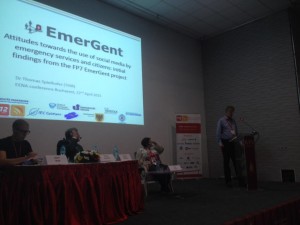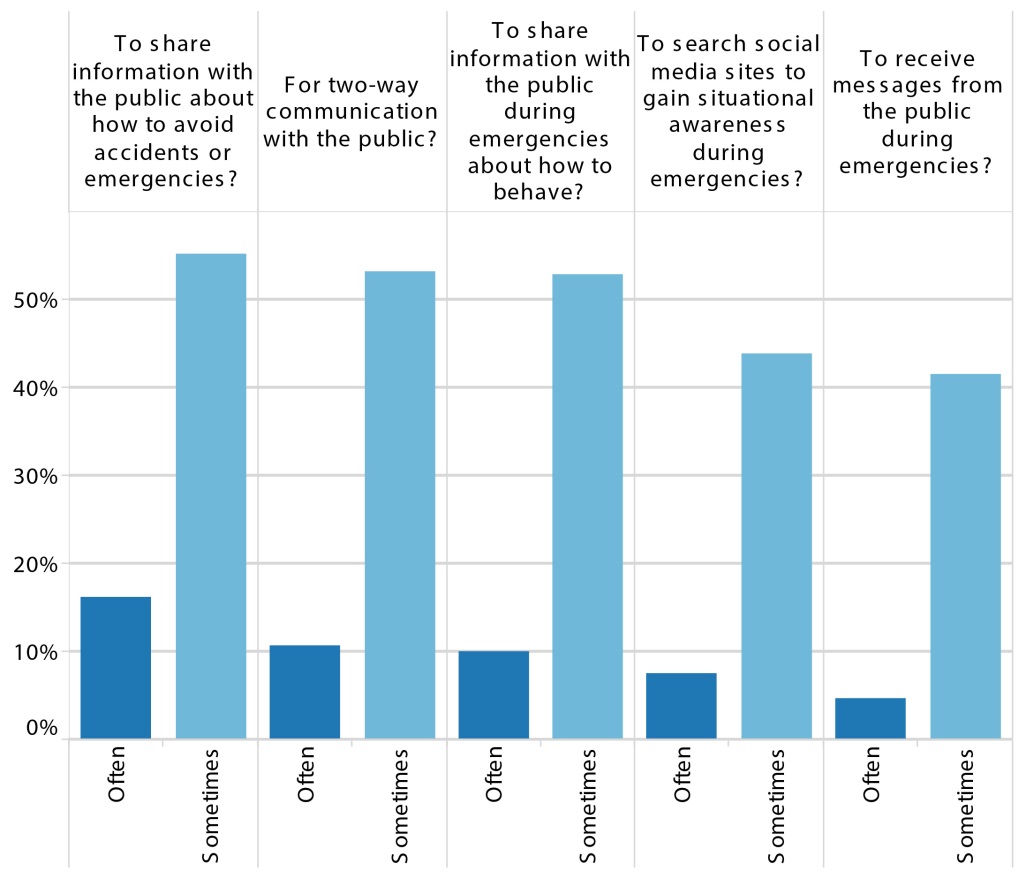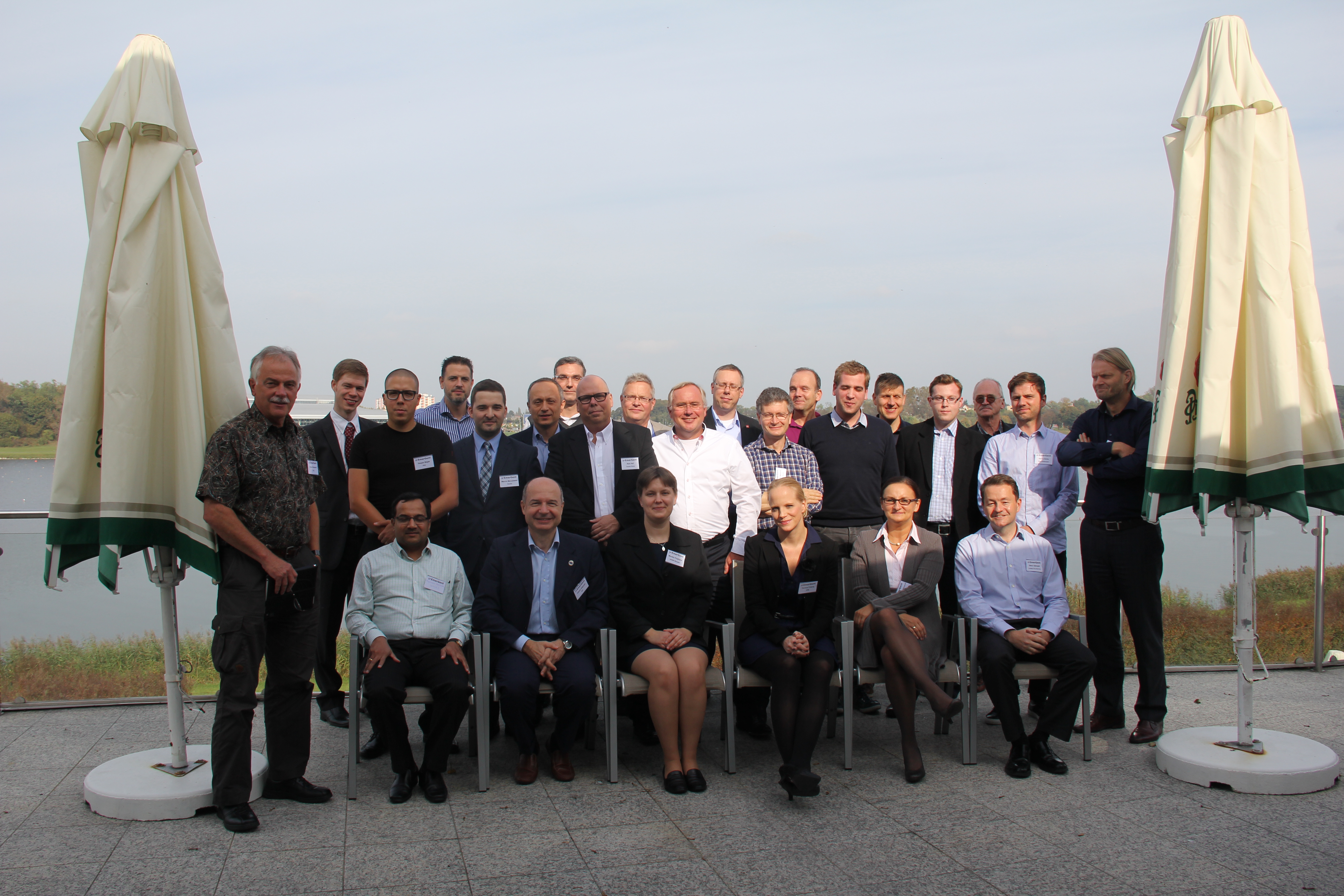This document provides a description of the European Data Protection and Privacy laws relevant to the EmerGent project. The EU Data Protection Directive is discussed, which acts as a guideline for data protection laws in each EU country. The laws based upon this directive in a number of EU countries are investigated as well. Further information are available in the summary of the Deliverable.
The results of the survey we conducted have been picked up by the european commission and can be reviewed here in english and on the Publications part in our Website.
Our overall system architecture has been specified in the Deliverable 6.1. You can find a summary on the Publications part of our website.
Following our Survey of the attitudes of Emergency Service staff towards social media (see: Survey Results of Emergency Service Staff Attitudes towards Social Media), we are now conducting a Survey of citizens’ attitudes towards social media and their views on using social media during emergencies. Please help us by completing this Survey – it is available in several languages at the following links:
We have specified our Information Mining and Information Quality components. You can have a look at the findings summed up in a nutshell on the Publications part of our website.
You can find details about our three new Deliverables on the Publications site:
This is a summary report of the findings from a survey of 696 Emergency Service staff across 27 European countries conducted between 9th September and 15th October 2014. The main aims of the survey were to explore Emergency Service staff’s attitudes towards social media for private and organizational use and the levels and main factors influencing their current and likely future use of social media in their organizations.
Key findings
- The majority of Emergency Service staff have positive attitudes towards the use of social media for both private and organizational purposes
- However, there are significant differences in the attitudes among different types of Emergency Service staff, in terms of their gender, age, and geographical location – thus, female, young staff and those based in countries with high levels of social media use are, on average, significantly more likely to express positive attitudes towards the use of social media for both private and organizational purposes



